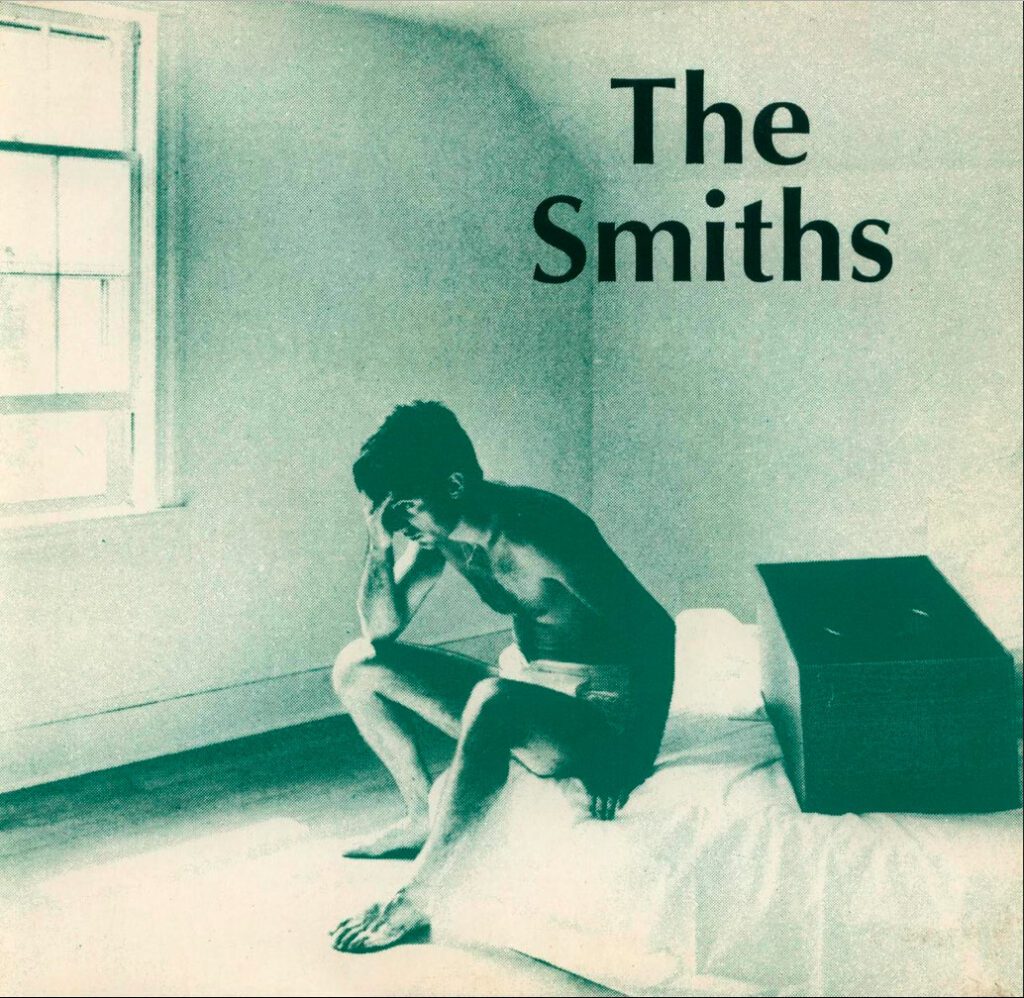In the world of music, few songwriters have possessed the ability to unravel the complexities of the human experience quite like Morrissey does in his lyrics.
As the haunting voice behind The Smiths and a solo career that stretches across decades, Morrissey has crafted a lyrical landscape that resonates with raw emotion and unfiltered introspection. In this exploration, we invite you to embark on a journey through the corridors of Morrissey’s mind, where his top 7 lyrics serve as poignant signposts.
These verses, etched in melancholy and beauty, have not only captured our collective imagination but have also managed to find an unparalleled kind of beauty in the seemingly bleak. Morrissey’s ability to paint with words, to infuse the starkness of reality with a poetic grace, is what makes these lyrics timeless.
Discover the profound allure of finding beauty amid life’s bleakest moments.
7. We Hate It When Our Friends Become Successful – Morrissey
“We hate it when our friends become successful, oh look at those clothes, now look at that face it’s so old, and such a video well, it’s really laughable”
Morrissey’s “We Hate It When Our Friends Become Successful” stands as a lyrical gem that encapsulates the complexities of fame and envy. Released as a single in 1992 from his album “Your Arsenal,” the song offers a candid exploration of the conflicting emotions that arise when someone close achieves success. Through Morrissey’s distinctive vocals, the lyrics reveal a mix of bitterness and vulnerability as he grapples with the contrast between personal struggles and the triumphs of those he once considered equals. The title itself is a bold statement that captures the uncomfortable truth about human nature—our tendency to harbour resentment even for those we care about. In classic Morrissey fashion, the song delivers a poignant commentary on the emotional intricacies of life, framed within a catchy and memorable musical backdrop.
6. You’ve Got Everything Now – The Smiths
“Back at the old grey school, I would win and you would lose, but you’ve got everything now, and what a terrible mess I’ve made of my life”
“You’ve Got Everything Now” by The Smiths, featured on their self-titled debut album, is a melancholic reflection on the disparity between expectations and reality. Morrissey’s poignant lyrics depict a sense of disillusionment and frustration, exploring the theme of unfulfilled dreams. The title itself serves as a bitter irony, as the protagonist contemplates the seeming abundance of everything but feels an existential void. With lines like “As merry as the days were long, I was right and you were wrong,” Morrissey crafts a narrative that delves into the complexities of personal fulfillment and societal pressures. The juxtaposition of the upbeat musical arrangement with the introspective lyrics creates a powerful contrast, making “You’ve Got Everything Now” a quintessential example of The Smiths’ ability to blend introspection with catchy melodies.
5. What Difference Does It Make? – The Smiths
“The devil will find work for idle hands to do, I stole and I lied and why? Because you asked me to.”
“What Difference Does It Make?” is a spirited anthem that captures the band’s signature blend of Morrissey’s wry lyricism and Johnny Marr’s jangly guitar hooks. Released as a single in 1984 and later included on their debut self-titled album, the song’s lyrics offer a mix of existential questioning and sardonic wit. Morrissey’s distinctive vocal delivery brings to life lines such as “All men have secrets and here is mine, so let it be known,” adding an air of mystery and self-awareness to the narrative. The chorus, with its infectious refrain of “What difference does it make?” becomes both a rallying cry and a rhetorical question, inviting listeners to ponder the uncertainties of life.
4. Girlfriend in a Coma – The Smiths
“Girlfriend in a coma I know it’s serious, there were times when I could have murdered her, but I would hate anything to happen to her”
The Smiths’ “Girlfriend in a Coma” is a darkly whimsical exploration of love and loss. Released in 1987 as part of their fourth studio album, “Strangeways, Here We Come.” The lyrics tell the story of a narrator grappling with the sudden and profound absence of a romantic partner. The title, provocative in itself, introduces a surreal and morbid twist to the conventional breakup song. Morrissey’s vocal delivery, characterized by a mix of sardonic humor and genuine sorrow, adds layers of complexity to the song’s emotional landscape. Despite the seemingly morose subject matter, “Girlfriend in a Coma” is an artistic testament to The Smiths’ ability to infuse even the bleakest themes with a unique blend of humor and musicality.
3. Everyday Is Like Sunday – Morrissey
“Every day is like Sunday, every day is silent and grey, hide on the promenade, etch a postcard, how I dearly wish I was not here”
Morrissey’s “Everyday Is Like Sunday” paints a vivid picture of desolation and urban ennui. Released as a single in 1988 and later featured on his debut solo album, “Viva Hate,” the song captures a melancholic and poetic view of suburban life. Morrissey’s evocative lyrics depict a sense of alienation and dissatisfaction with the mundane routine of small-town existence. The haunting refrain, “Every day is like Sunday, every day is silent and gray,” echoes a sense of monotony and longing for something more. The juxtaposition of the bleak lyrical imagery with the melodic and almost nostalgic musical arrangement creates a poignant atmosphere that resonates with listeners, making “Everyday Is Like Sunday” an enduring and introspective piece in Morrissey’s solo repertoire.
2. Ask – The Smiths
“Shyness is nice, and shyness can stop you, from doing all the things in life you’d like to”
The Smiths’ “Ask” is a buoyant and infectious anthem that showcases the band’s ability to infuse pop sensibilities with Morrissey’s trademark lyrical wit. Released in 1986 as a non-album single, the song’s lyrics feature Morrissey’s playful yet enigmatic style, urging the listener to “ask” about various aspects of life and relationships. The chorus, with its catchy refrain of “Shyness is nice, and shyness can stop you from doing all the things in life you’d like to,” encapsulates the band’s knack for combining introspection with a sense of optimism. Johnny Marr’s upbeat guitar riffs contribute to the overall buoyancy of the song, making “Ask” a standout in The Smiths’ discography that effortlessly balances Morrissey’s lyrical depth with the band’s pop-infused sound.
1. Heaven Knows I’m Miserable Now – The Smiths
“Two lovers entwined, pass me by, and heaven knows I’m miserable now, I was looking for a job and then I found and job, and heaven knows I’m miserable now”
The Smiths’ “Heaven Knows I’m Miserable Now” is a poignant exploration of disillusionment and self-pity, characteristic of Morrissey’s introspective lyricism. Released as a single in 1984 and later included in the compilation album “Hatful of Hollow,” the song reflects the band’s ability to infuse melancholy themes with catchy melodies. Morrissey’s lyrics, adorned with self-deprecating humor, detail a sense of despair and frustration with life’s challenges. The iconic chorus, with its wry declaration “Heaven knows I’m miserable now,” has become emblematic of the song’s enduring appeal. “Heaven Knows I’m Miserable Now” remains a quintessential part of The Smiths’ catalogue, capturing the universal sentiment of navigating through life’s trials with a touch of sardonic charm.
See what guitars you can win on our site by clicking HERE
-
Product on sale
 Epiphone Dove Studio in Transparent Ebony BurstOriginal price was: £1.99.£1.75Current price is: £1.75.Per Entry
Epiphone Dove Studio in Transparent Ebony BurstOriginal price was: £1.99.£1.75Current price is: £1.75.Per Entry -
 Epiphone Les Paul Custom Widow in Purple Burst£0.99Per Entry
Epiphone Les Paul Custom Widow in Purple Burst£0.99Per Entry -
 Boost Your Odds – Win Tickets Instantly!£1.99Per Entry
Boost Your Odds – Win Tickets Instantly!£1.99Per Entry -
 £30,000 Instant Win – 1/3 Odds£1.99Per Entry
£30,000 Instant Win – 1/3 Odds£1.99Per Entry -
Product on sale
 1992 Gibson ES-335 Dot in Vintage Sunburst – Yamano Import!Original price was: £2.99.£2.50Current price is: £2.50.Per Entry
1992 Gibson ES-335 Dot in Vintage Sunburst – Yamano Import!Original price was: £2.99.£2.50Current price is: £2.50.Per Entry -
 1987 Fender American Standard Stratocaster in 3-Tone Sunburst – B-Stock Bargain!£0.17Per Entry
1987 Fender American Standard Stratocaster in 3-Tone Sunburst – B-Stock Bargain!£0.17Per Entry -
 Gibson SG Standard Custom Colour in Cardinal Red Burst£0.30Per Entry
Gibson SG Standard Custom Colour in Cardinal Red Burst£0.30Per Entry -
 PRS SE CE24 in Slate Blue – Same-Day Delivery in The TGM Bus!£2.99Per Entry
PRS SE CE24 in Slate Blue – Same-Day Delivery in The TGM Bus!£2.99Per Entry -
 Gibson J-185 EC Modern Walnut in Antique Natural£2.99Per Entry
Gibson J-185 EC Modern Walnut in Antique Natural£2.99Per Entry







